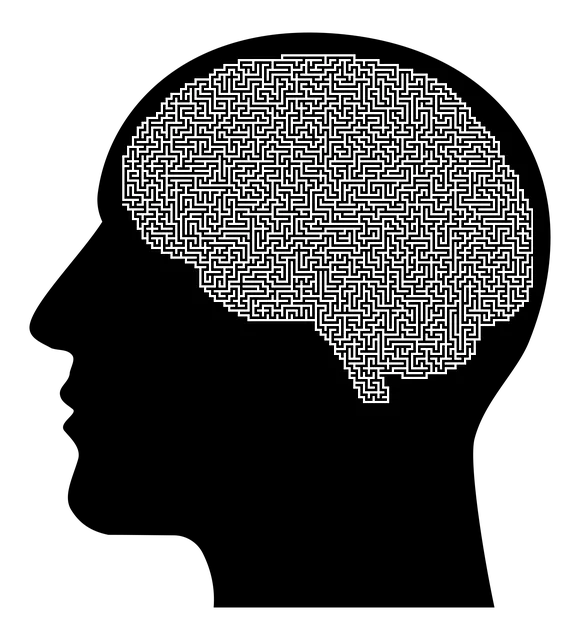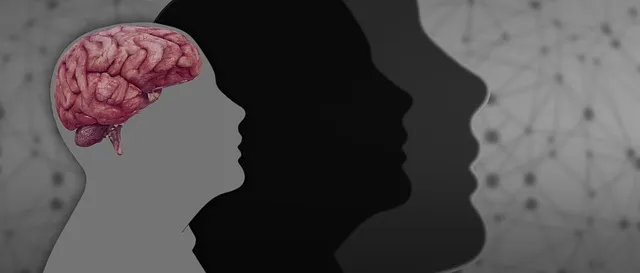Kaiser Permanente Mental Health Littleton presents a comprehensive guide to mood regulation, focusing on healthy emotion navigation and response. Key strategies include recognizing triggers through introspective thought tracking, developing personalized coping mechanisms, and fostering resilience. Cognitive techniques like mindfulness and CBT challenge negative thoughts, reshaping mental landscapes for improved stress reduction and self-esteem. Lifestyle changes, including balanced diets, exercise, and sleep, are highlighted as powerful tools for managing depression and anxiety. Building a robust support network offers guidance and understanding, facilitating emotional well-being and navigating life's challenges effectively.
Mood regulation strategies are essential tools for maintaining emotional balance. This comprehensive guide, inspired by insights from Kaiser Permanente Mental Health Littleton, explores various techniques to help you navigate and manage your moods effectively. From understanding mood regulation’s foundational concepts to identifying personal triggers and adopting cognitive techniques, we delve into actionable lifestyle changes and the profound impact of support systems. Discover how these strategies can enhance your overall well-being.
- Understanding Mood Regulation: An Overview by Kaiser Permanente Mental Health Littleton
- Identifying Triggers: Recognizing Patterns for Effective Strategies
- Cognitive Techniques: Rewiring Your Mind for Emotional Balance
- Lifestyle Changes: Diet, Exercise, and Sleep for Mood Stability
- Support Systems: The Power of Connection in Managing Emotions
Understanding Mood Regulation: An Overview by Kaiser Permanente Mental Health Littleton

Understanding Mood Regulation is a comprehensive guide offered by Kaiser Permanente Mental Health Littleton, which provides valuable insights into managing and maintaining emotional well-being. They emphasize that mood regulation isn’t just about eliminating negative feelings but rather learning to navigate and respond to them healthily. This process involves recognizing triggers, developing coping mechanisms, and fostering resilience.
The text highlights various strategies such as mindfulness practices, cognitive reframing, and building supportive relationships, which are essential tools in the arsenal of mental health professionals. Additionally, it touches on the importance of self-care and stress management techniques, ensuring that individuals can effectively navigate life’s challenges and promote their own emotional healing processes. This overview serves as a valuable resource for those seeking to enhance their mood regulation skills, offering practical guidance aligned with evidence-based practices from Kaiser Permanente Mental Health Littleton.
Identifying Triggers: Recognizing Patterns for Effective Strategies

Recognizing triggers is a crucial step in effective mood regulation strategies, as recommended by Kaiser Permanente mental health Littleton professionals. By identifying patterns that lead to emotional dysregulation, individuals can proactively develop coping mechanisms tailored to their specific needs. This process involves introspection and tracking one’s thoughts, behaviors, and environmental cues over time. For instance, someone might realize that certain situations, people, or even specific memories consistently trigger intense emotions. Once these triggers are identified, individuals can start implementing strategies to navigate or avoid them, thereby reducing the frequency and intensity of mood episodes.
For mental health professionals assessing risk in their practice, understanding client triggers is essential. It allows for personalized treatment plans that incorporate trauma support services, particularly relevant for those with a history of adversity. By recognizing patterns and providing appropriate tools for emotional regulation, practitioners can empower individuals to manage their mental well-being more effectively. This proactive approach not only prevents escalations in mood disorders but also fosters overall resilience and quality of life.
Cognitive Techniques: Rewiring Your Mind for Emotional Balance

Cognitive techniques offer a powerful way to rewire your mind and achieve emotional balance, as recognized by experts at Kaiser Permanente mental health Littleton. This involves identifying and challenging negative thought patterns that can contribute to mood disorders. By practicing mindfulness, individuals learn to observe their thoughts without judgment, fostering a greater sense of detachment from distressing emotions. Techniques such as cognitive-behavioral therapy (CBT) teach you to replace unhelpful beliefs with more realistic and positive ones, effectively reshaping your mental landscape.
Through consistent practice, these cognitive strategies can lead to significant improvements in managing stress reduction methods. Moreover, they enhance self-esteem improvement by promoting a healthier relationship with yourself and your thoughts. The Community Outreach Program Implementation at Kaiser Permanente, for instance, leverages these techniques to empower individuals and communities to take charge of their mental well-being, ultimately contributing to a more resilient and balanced society.
Lifestyle Changes: Diet, Exercise, and Sleep for Mood Stability

Maintaining a balanced mood involves more than just therapy or medication, and lifestyle changes play a significant role in achieving long-term mental health stability. Kaiser Permanente mental health Littleton emphasizes the interconnectedness of diet, exercise, and sleep as foundational pillars for regulating emotions. A well-rounded approach to these areas can be a game-changer in managing conditions like depression or anxiety.
Diet plays a crucial part in mood management, with certain foods known to influence neurotransmitters responsible for regulating mood. Incorporating nutrient-rich, balanced meals and limiting processed sugars and unhealthy fats can significantly impact overall mental well-being. The Trauma Support Services offered by Kaiser Permanente provide valuable resources for individuals seeking coping skills development related to dietary changes. Regular exercise is another powerful tool; it stimulates the release of endorphins, natural mood boosters, while also reducing stress hormones. Combining these strategies with consistent, high-quality sleep creates an optimal environment for effective mood management and overall mental health improvement.
Support Systems: The Power of Connection in Managing Emotions

Building a strong support system is an integral part of managing and regulating one’s mood effectively. According to Kaiser Permanente mental health Littleton, connecting with others can significantly enhance emotional well-being. Whether it’s reaching out to friends and family or joining support groups, these connections provide a sense of belonging and understanding. The power of shared experiences and empathy from loved ones can help individuals navigate through difficult emotions and stressful situations.
Mental wellness coaching programs development often emphasizes the importance of cultivating inner strength through such social networks. By fostering meaningful relationships, one can develop resilience and learn healthy coping mechanisms. This support system acts as a buffer against life’s challenges, offering guidance and a listening ear when needed. It’s not just about seeking help; it’s about building a community that supports and empowers individuals on their journey towards emotional balance and overall mental wellness coaching programs development.
Mood regulation is a multifaceted process that involves understanding our emotions, identifying triggers, and implementing various strategies. By drawing on resources like Kaiser Permanente Mental Health Littleton’s insights, we can gain valuable tools for managing our moods effectively. Integrating cognitive techniques, adopting healthy lifestyle changes, and cultivating strong support systems empower individuals to navigate emotional challenges with resilience. Through these holistic approaches, we can achieve greater emotional balance and improve overall well-being.






